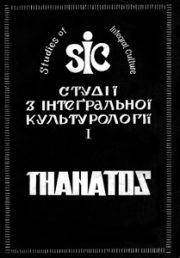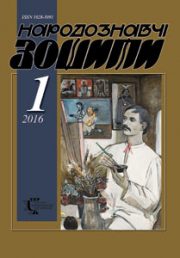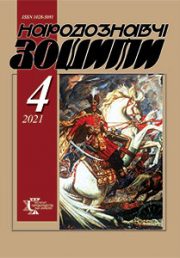The Ethnology Notebooks. 2018, № 4 (142), 886–901
UDK 930.85(38):[39:737.14”652”]
DOI https://doi.org/10.15407/nz2018.04.886
Received 17.05.2018
A HISTORY OF ACTIVITY OF ARCHITECTS PROFESSIONAL ASSOCIATIONS IN THE CITY OF LVIV
Shuliar Vitalii – Senior Lecturer of the Department of Architecture and Restoration of the Lviv Polytechnic National University
street of Stepan Bandera, 12, Lviv, Lviv area, 79000
Contacrs: e-mail: arcvis@bigmir.net
Abstrakt. The article is about establishment and activity of professional associations of Lviv architects during last 140 years, such as Polytechnic Society established in 1877, Circle of Polish Architects in Lviv – later – Assosiation of Architects of Polish Republic (SARP). – Lviv branch of Union of Architects of Ukraine in the periods of USSR and independent Ukraine.
Keywords: professional association, circle of architects, Union of architects.
REFERENCES
DALO. F. R–1657. Op. 1. Spr. 5. Arc. 3 [in Ukrainian].
DALO. F. R–1657. Op. 1. Spr. 9. Arc. 1 [in Ukrainian].
DALO. F. 1657. Op. 1 [in Ukrainian].
DALO. F. R–1657. Op. 1. Spr. 35. Arc. 1 [in Ukrainian].
DALO. F. R–1657. Op. 1. Spr. 17. Arc. 1 [in Ukrainian].
DALO. F. R–1657. Op. 1. Spr. 102. Arc. 7 [in Ukrainian].
DALO. F. R–1657. Op. 1. Spr. 102. Arc. 87 [in Ukrainian].
DALO. F. R–1657. Op. 1. Spr. 102. Arc. 13 [in Ukrainian].
DALO. F. R–1657. Op. 1. Spr. 130. Arc. 25 [in Ukrainian].
DALO. F. R–1657. Op. 1. Spr. 63. Arc. 6 [in Ukrainian].
DALO. F. R–1657. Op. 1. Spr. 63. Arc. 15 [in Ukrainian].
DALO. F. R–1657. Op. 1. Spr. 120. Arc. 1–3 [in Ukrainian].
DALO. F. R–1657. Op. 1. Spr. 185. Arc. 3 [in Ukrainian].
DALO. F. R–1657. Op. 1. Spr. 121. Arc. 16 [in Ukrainian].
DALO. F. R–1657, Op. 1. Spr. 102. Arc. 14–15 [in Ukrainian].
DALO. F. R–1657. Op. 1. Spr. 121. Arc. 17 [in Ukrainian].
DALO. F. R–1657. Op. 1. Spr. 102. Arc. 15 [in Ukrainian].
DALO. F. R–1657. Op. 1. Spr. 121. Arc. 3 [in Ukrainian].
DALO. F. R–1657. Op. 1. Spr. 121. Arc. 17 [in Ukrainian].
DALO. F. R–1657. Op. 1. Spr. 130. Arc. 7 [in Ukrainian].
Heneha, R. (2014). Formuvannia radians’koho sotsial’noho prostoru u L’vovi (1944–1953 rr.). Ukrains’kyj istorychnyj zhurnal, 6, 77–91 [in Ukrainian].
Noha, O. (2009). Ivan Levyns’kyj: arkhitektor – pidpryiemets’ – metsenat. L’viv: Tsentr Yevropy [in Ukrainian].
Skubchenko, G.M. (1983). Istoriia Lvovskoi organizatsii Soiuza arhitektorov USSR. Lvov [in Russian].
Shuliar, A. (1997). Svirz’kyi zamok. Khronika restavratsiinykh. Arkhitekturnyi visnyk, 1 (2), 23–25 [in Ukrainian].
Shuliar, A. (2004). 45 rokiv L’vivs’komu budynku arkhitektora. Arkhitekturnyi visnyk, 1–2 (21), 46–47 [in Ukrainian].
Architekt. (1909). Krakуw: nakіadem Krakowskiego Towarzystwa Technicznego, X, 6, 100 [in Polish].
Architekt. (1929). Krakуw: nakіadem Krakowskiego Towarzystwa Technicznego, XXII, 2–3, 118 [in Polish].
Architektura i Budownictwo: miesiкcznik ilustrowany. (1934). Warszawa: Warszawskie Koіo Architektуw, 11, 364 [in Polish].
Czasopismo Techniczne. (1908). Polskie Towarzystwo Politechniczne we Lwowie, XXVI,18, 284 [in Polish].
Czasopismo Techniczne. (1909). Polskie Towarzystwo Politechniczne we Lwowie, XXVII, 21, 261–266 [in Polish].
Czasopismo Techniczne. (1910). Polskie Towarzystwo Politechniczne we Lwowie, XXVIII, 24, 12 [in Polish].
Czasopismo Techniczne. (1916). Polskie Towarzystwo Politechniczne we Lwowie, XXXIV, 2, 18 [in Polish].
Fiedler, T. (1927). Zarys powstania i 50–letniej dziaіalnosci Polskiego Towarzystwa Politechnicznego we Lwowie (1877–1927). Polskie Towarzystwo Techniczne we Lwowie [in Polish].
Gazeta Lwowska. (1937), 82 [in Polish].
Konkurs na dom Bromilskich. (1909). Czasopismo Techniczne, Polskie Towarzystwo Politechniczne we Lwowie, XXVII, 20, 247–250 [in Polish].
Konkursy. (1912). Architekt. Krakуw: nakіadem Krakowskiego Towarzystwa Technicznego, XII, 5, 59 [in Polish].
Kozlowski, S. (1927). Wystawy i konkursy. Polskie Towarzystwo Techniczne we Lwowie [in Polish].
Kronika. (1912). Architekt. Krakуw: nakіadem Krakowskiego Towarzystwa Technicznego, XII, 5, 55 [in Polish].
Kronika. Architekt. (1925). Krakуw: nakіadem Krakowskiego Towarzystwa Technicznego, XX, 8, 32 [in Polish].
Grzкbski, E.B. (Ed.). (1902). Pamiкtnik Jubileuszowy. Towarzystwo politechniczne we Lwowie. 1877–1902 [in Polish].
Piіatowicz, J. (2005). Ruch stowarzyszeniowy inїynierуw i technikуw polskich do 1939 r. Warszawa, II [in Polish].
Protokуl I Zjazdu delegatуw Kуl architektonicznych polskich w Krakowie 1908. (1909). Czasopismo Techniczne. Polskie Towarzystwo Politechniczne we Lwowie, XXVII, 1, 5–7 [in Polish].
Rozmaitosci. (1909). Czasopismo Techniczne. Polskie Towarzystwo Politechniczne we Lwowie, XXVII, 24, 320 [in Polish].
Wybуr nowego Wydziaіu Koіa Architektуw Polskich we Lwowie. (1926). Architektura i Budownictwo: miesiкcznik ilustrowany. Warszawa: Warszawskie Koіo Architektуw, 12, 29 [in Polish].
Zasady konkursуw architektonicznych. (1909). Czasopismo Techniczne. Polskie Towarzystwo Politechniczne we Lwowie, XXVII, 7, 82–84 [in Polish].
Luts’kyj, O. Intelihentsiia v planakh utverdzhennia radians’koho totalitarnoho rezhymu na zakhidnoukrains’kykh zemliakh (veresen’ 1939 – cherven’ 1941). Retrieved from: http://www.stattionline.org.ua/histori/114/21638–inteligenciya–v–planax–utverdzhennya–radyanskogo–totalitarnogo–rezhimu–na–zaxidnoukrainskix–zemlyax–veresen–1939–cherven–194.html (Last accessed: 19.03.2014).
Nahirnyj Yevhen Vasyl’ovych. Retrieved from: https://uk.wikipedia.org/wiki/Nahirnyj _Yevhen_Vasyl’ovych (Last accessed: 19.03.2014).
Natsional’ni tvorchi spilky Ukrainy: perspektyvy uchasti v kul’turnij politytsi. Analitychna zapyska. Natsional’nyj instytut stratehichnykh doslidzhen’. Viddil humanitarnoi polityky (O.P. Rozumna). Retrieved from: http://www.niss.gov.ua/articles/1413/ (Last accessed: 19.03.2014).
Marjan Osinski. Retrieved from: https://pl.wikipe¬dia.org/wiki/Marian_Osinski (Last accessed: 19.03.2014).






